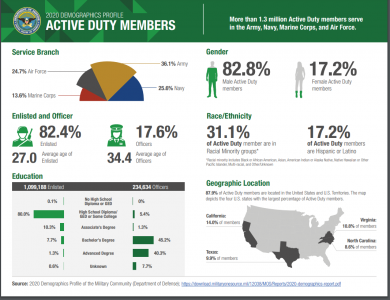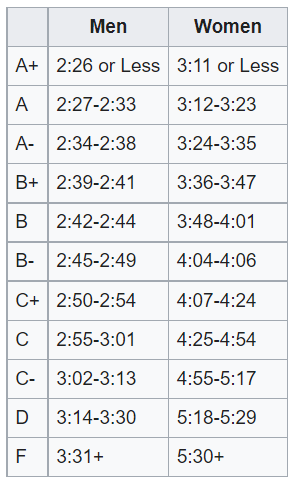None of those things made the Army more lethal, or more effective. In fact, they did the opposite. In the interest of brevity, I'm only going to address a couple of them here:
The problem with the 670-1 changes is that they were not applied equally, they were applied
favorably. I.e., one group of people (women, in the examples you gave) was favored over others. I'm fine with every one of the changes you mentioned, if there were applied to everyone. If a man wants a ponytail, he should be able to have one if women can. Same with nail polish, ear rings, skirts, anything else. I don't think anyone should have makeup, polish, or bling in the work uniform, but if the Army decides it's OK, it should be OK for everyone.
The drumbeat for the past decade was "hey we just want to be treated equally." But that's not what anyone means. People are hard wired to gain as much comfort and power as they can. No one wants to give up their special privileges. They want what's best for themselves. If women really wanted equality, wouldn't they refuse to take privileges not afforded to men? Of course they wouldn't. Just like men wouldn't refuse to go to Ranger School, or into the Infantry Branch, when those options were denied to women. It's never about equality, it's always about "what's best for me." This is a human trait, not something that I'm ascribing to any one group.
Allowing anyone special privileges and denying them to others makes the "others" resentful. This directly relates to the ACFT debacle. One of the biggest selling points about the ACFT, which most people in the Army did not want for many reasons that we discussed at length here on the site, because it was going to be an "equal" test. No special privileges for gender, no special grading for age. No more "pretty fit for a female" or "OK fitness for an old dude."
The Army views women as functionally interchangeable with men, which is why they're allowed into any training, any MOS, and any specialty. But they were allowed to retain their special privileges, ones, to their credit, that the service women themselves weren't demanding. For example, the ACFT is now gender and age normed. Simply put, if you're female, you have a built-in advantage. Because test scores have a number associated with them, they are disproportionately valued for things like promotion, school selection, and job competition. You can see this especially pronounced at things like the service academies. At West Point's
Indoor Obstacle Course Test, for example, an A for a woman is a D for a man.
View attachment 41031
This score contributes to a cadet's athletic grade, and can make the difference in things like class rank, which affects branch, post, and job within the Corps of Cadets. Same achievement, same score, but different outcome. How is this "equal?"
The worst part of it is, the women don't need it. I once watched a female cadet knock out 100 straight, perfect-form pushups. I've ever in my life been able to do that many straight. She was atypical (male or female) for that kind of upper-body strength, but there is no reason why we can't find a common floor and ceiling for everyone. One standard. No quotas, not special carve-outs. For anything. That would go way farther towards "equality" than anything else we've talked about.
But "equality" wasn't the real end goal, was it? It never really is...



